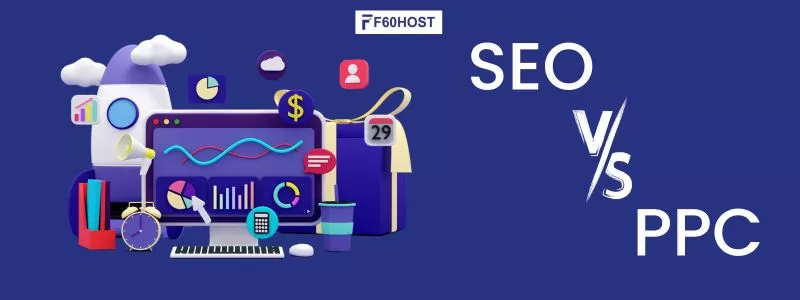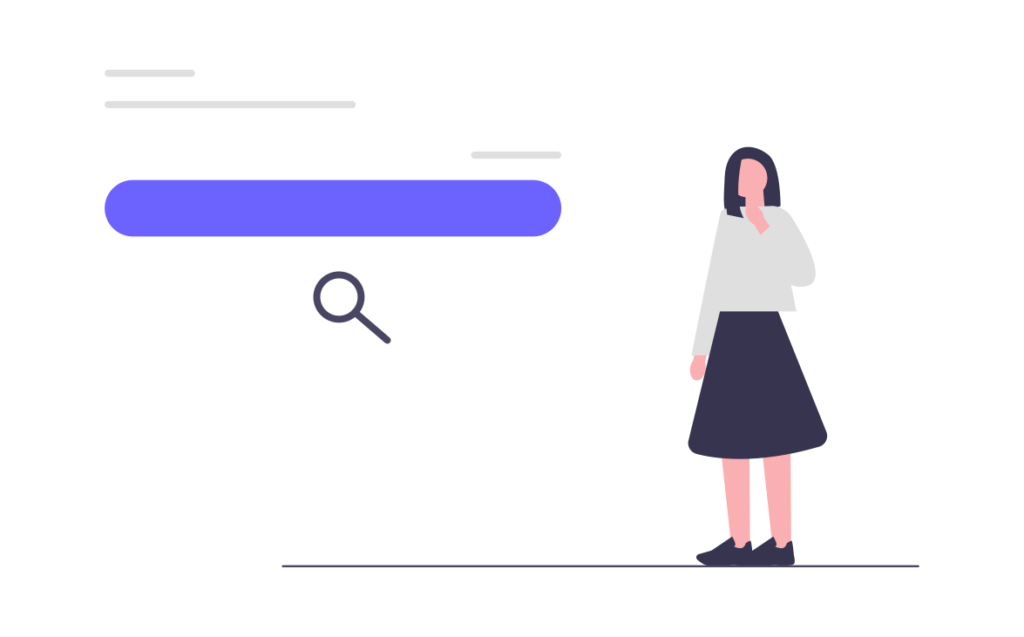SEO vs. PPC: Which Delivers Better ROI?

What is SEO?
SEO is an abbreviation for Search Engine Optimization. It is the practice of optimizing a website or online content in order to increase its exposure and rankings in search engine results pages (SERPs). SEO’s purpose is to generate organic (non-paid) visitors from search engines such as Google, Bing, and Yahoo.

Complex algorithms are used by search engines to determine the relevancy and quality of online pages in response to user search requests. To improve a website’s chances of appearing higher in search results, SEO approaches try to align its content, structure, and technological features with these algorithms.
SEO entails a variety of strategies and tactics, including:
Keyword research:
Identifying relevant keywords and phrases that consumers are likely to use while searching for information or products linked to your website.
On-page optimization:
Individual web pages are optimized by adding target keywords in strategic locations such as titles, headings, meta tags, and content. It also entails optimizing the user experience, ensuring fast loading times, and making the website mobile-friendly.
Off-page optimization:
Increasing the authority and reputation of the website by obtaining backlinks from other respected websites. Backlinks serve as votes of confidence and can improve a site’s rating.
Content creation:
Creating high-quality, educational, and engaging content that meets user expectations and adheres to search engine requirements. This includes articles, blog posts, videos, infographics, and other forms of media.
Technical optimization:
Ensure that the technical features of the website, such as site speed, mobile friendliness, crawlability, and indexability, are optimised so that search engines can crawl and interpret the material efficiently.
User experience (UX):
Providing a favorable experience for website visitors through simple navigation, clear information architecture, and intuitive design.
As search engine algorithms evolve and competition for online visibility grows, SEO is an ongoing activity. Businesses and website owners may increase organic search traffic, reach their target audience, and improve their online presence by employing effective SEO methods.
What is PPC?
PPC is an abbreviation for Pay-Per-Click, a digital advertising mechanism used to attract visitors to websites. Advertisers in PPC advertising pay a fee each time a user clicks on their ad. It is a type of online advertising in where businesses can place ads on search engine results pages (SERPs), websites, or social media platforms and only pay when someone clicks on their ad.
Google Ads (previously Google AdWords) is the most popular platform for PPC advertising, where advertisers bid on keywords related to their products or services. When a user enters certain terms into a search engine, the adverts appear at the top or bottom of the search results. Advertisers pay for each ad click, and the cost per click (CPC) is calculated by a bidding system and characteristics such as keyword competitiveness and ad quality.
PPC advertising offers several benefits:
Immediate visibility:
PPC helps businesses to appear at the top of search engine results or on other websites rapidly, getting immediate awareness and exposure to potential clients.
Targeted advertising:
Advertisers can select precise keywords, demographics, localities, and other targeting choices to guarantee their ads are displayed to the appropriate audience, improving the likelihood of reaching potential consumers.
Measurable results:
PPC delivers precise analytics and performance indicators, allowing marketers to evaluate campaign efficacy, calculate ROI, and make data-driven optimisations.
Control over budget:
Advertisers have control over their advertising budget and can set daily or monthly limitations to guarantee they do not go over.
Flexibility and customization:
Advertisers may quickly customise PPC campaigns by creating and testing numerous ad variations, targeting different keywords, and adjusting their strategy based on real-time data and insights.
While PPC can provide instant traffic and results, it requires constant management and optimization to attain best performance and cost-effectiveness. To maximize their PPC spend, advertisers should constantly evaluate their campaigns, refine their targeting, test different ad copy, and adjust their bidding tactics.
Difference between SEO & PPC
SEO (Search Engine Optimization) and PPC (Pay-Per-Click) are two different digital marketing tactics for increasing website visibility and traffic. Here are the main distinctions between SEO and PPC:
| SEO | PPC | |
|---|---|---|
| Traffic Generation | SEO focuses on improving a website’s organic (unpaid) search engine ranks by optimising its content, structure, and other elements. The objective is to raise visibility and draw search engine organic traffic. | PPC entails purchasing ad space on other websites or search engine results pages (SERPs). In exchange for a click on their adverts, advertisers place bids on keywords. The objective is to immediately increase visitors to a website. |
| Cost | In general, SEO is a long-term plan that needs to be invested in terms of time, money, and knowledge. Although the outcomes are natural and unpaid, it might take continued work to go up the ranks. | PPC entails direct costs because advertisers are charged for each ad click. The cost per click (CPC) is influenced by things like keyword difficulty and quality score. Budgets and spending restrictions can be set by advertisers. |
| Position on SERP | SEO tries to raise websites’ organic search rankings so they can show up in the standard (non-ad) search results. Position in the SERPs is influenced by a number of variables, including website quality, relevancy, backlinks, and user experience. | On SERPs, PPC advertisements frequently appear above or below the organic search results. Depending on their budget and level of competition, advertisers can bid for higher ad placements. |
| Timeframe and Results | A long-term approach, SEO takes time to develop and provide noticeable effects. It entails improving user experience, optimising the website, producing high-quality content, and constructing backlinks. It could take months for the consequences to show, but they could be advantageous long term. | PPC can generate traffic and results right away. A campaign can start appearing and generating clicks nearly immediately once it is put up. However, when the PPC campaign is suspended or the money is used up, the traffic stops. |
| Click Attribution | In SEO, organic search results are credited with the clicks and traffic. Visitors arrive at the website without paying a direct cost per click, and they may be persuaded to take certain activities by rankings, meta descriptions, and search snippets, among other things. | Clicks and traffic in PPC are directly attributable to the purchased advertisements. Targeting, ad message, and landing pages are all more customizable for advertisers, and they can assess the profitability of particular campaigns and keywords. |
It is critical to understand that SEO and PPC are not mutually exclusive techniques. Combining the two can produce the best results because SEO establishes a solid organic basis while PPC delivers rapid visibility and targeted visitors. The best technique is determined by your individual business goals, budget, timeframe, and industry competitiveness.
